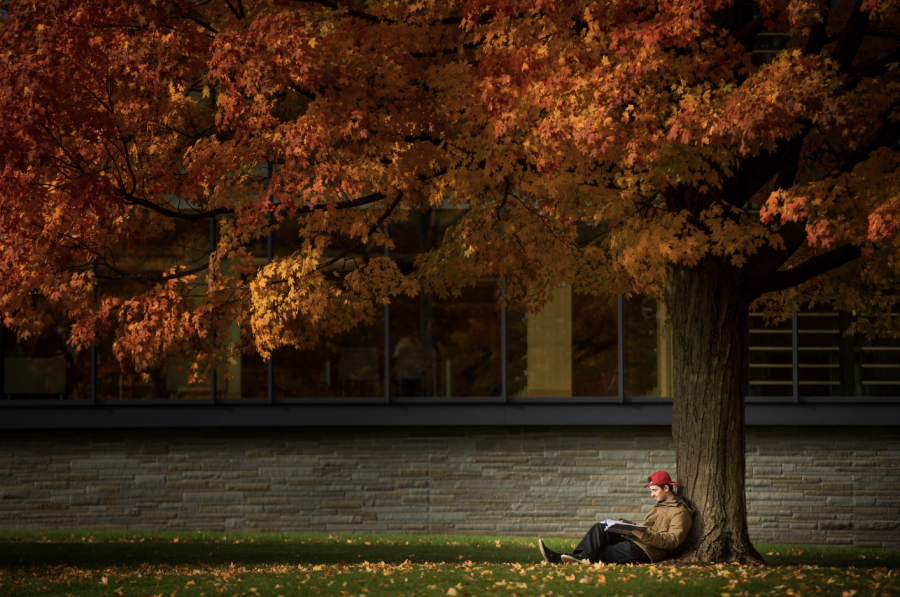Many have reported that Lafayette’s plant life triggers more long-lasting and debilitating seasonal allergies.
According to the Lafayette Campus Tree Project, a study carried out by students in 2016, many of the trees on campus, often within the birch tree category, are triggers for allergies. Alongside oak and cedar trees, these three broad tree species typically cause the worst allergies.
Many assume that flowering trees trigger the worst symptoms. However, trees without flowers rely on wind for pollination, causing more of the allergen to be released into the air.
While a variety of trees all have their own specific triggers that cause frustrating symptoms, students seemingly have come to a consensus that no spot on campus is a refuge from these allergens.
“I used to not have allergies, but coming [to Lafayette] has really changed things,” Elise Trocker ’26 said. “My symptoms were … so similar to an illness that some doctors thought [they were] sinus infections. This is really just a new thing for me.”
As Lafayette continues to advance its biodiversity program, many of the trees have their own specific elements that catalyze allergy symptoms. Maddie Lebish ‘23, a biodiversity specialist in the Office of Sustainability, said that a variety of ecological factors all add up to these “worse than usual” symptoms.
“There’s trees that many incoming students have never been around, and that’s a big thing with allergies, of course,” Lebish said. “It’s also the reality that Lafayette is a campus that focuses on manicured lawns and how everything looks, so you’re just around more allergens in general. Between all of the plants, flowers and fertilizer, there’s just so many factors.”
As someone who lives not too far from campus, Lebish emphasized that the issue isn’t a Lehigh Valley problem and is more so exclusive to campus.
“Including myself, I’m friends with a bunch of people that are from the Valley, and we all agree that our allergies are worse on campus than [at] home,” Lebish said.
On the other hand, a few students have said that their allergies improved during their time at Lafayette.
“I know one or two people who said that their allergies are actually better, but I know the general consensus is that these allergies haven’t gone away,” Trocker said.
As the campus prepares for the spring, noticeable weather patterns in the Lehigh Valley and Northeast may very well impact spring allergies and the peak of allergy season.
Temperatures have reached over 60 degrees on multiple occasions during February, leading to fears that spring allergies could be triggered sooner than usual. The USA National Phenology Network reported that much of the Mid-Atlantic region saw spring leafing begin over the past week.
For more serious allergic reactions, Bailey Health Center holds an allergy clinic that administers injections. More typical over-the-counter medicines are offered at scheduled visits to the health center.
In a past meeting, director of health services Dr. Jeffrey Goldstein speculated about what the future of Bailey Health Center could look like, saying that allergies could be properly addressed throughout the campus master plan process.
“Students becoming more involved could help implement new changes,” Goldstein said. “The student voice is definitely the loudest of all.”




































































































